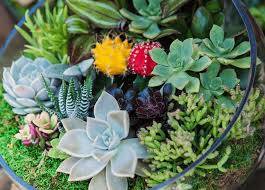South Africa's Succulent Karoo region, a biodiversity hotspot, is facing a surge in illegal poaching of its unique succulent plants. These "super-strange looking" plants, such as conophytum, are highly sought after for their ornamental value, leading to organized crime syndicates exploiting the demand. The poaching crisis has escalated since the COVID-19 pandemic, with over 1.6 million illegally harvested succulents seized between 2019 and 2024.
**The Appeal of South Africa's Succulents**
Succulents from the Succulent Karoo are renowned for their diverse and striking appearances. Species like conophytum, with their small, multi-colored, button-like forms, have become particularly popular among plant enthusiasts worldwide. This growing interest has transformed these plants into coveted collectibles, driving up their market value.
**The Surge in Illegal Poaching**
The escalating demand for these unique plants has led to a significant increase in illegal poaching activities. Organized crime syndicates have capitalized on the situation, employing local communities to harvest these succulents, which are then smuggled and sold on international markets. The poaching has reached alarming levels, with some species now critically endangered.
**Impact on Local Communities**
The illegal trade has profound effects on local communities. While poaching provides short-term financial gains, it undermines long-term ecological sustainability and disrupts traditional livelihoods. Conservationists warn that the depletion of these plant species could lead to ecological imbalances, affecting both the environment and the communities that depend on it.
**Conservation Efforts and Challenges**
In response to the crisis, conservationists and authorities are implementing measures to combat poaching. These include community education programs, stricter enforcement of trade regulations, and international collaborations to monitor and prevent the illegal trade. However, challenges persist due to the high demand and the sophisticated methods employed by traffickers.
**The Role of Consumers**
Consumers play a crucial role in addressing this issue. By choosing to purchase plants from reputable sources and being aware of the origins of the plants they buy, they can help reduce the demand for illegally harvested succulents. Educational campaigns are underway to inform buyers about the importance of supporting sustainable and legal trade practices.
**Conclusion**
The illegal trade in South Africa's unique succulents poses a significant threat to biodiversity and the well-being of local communities. Addressing this issue requires a multifaceted approach, including stricter enforcement, community engagement, and responsible consumer behavior. Protecting these "super-strange looking" plants is essential for preserving South Africa's natural heritage and ensuring ecological balance.



No comments yet
Be the first to share your thoughts!